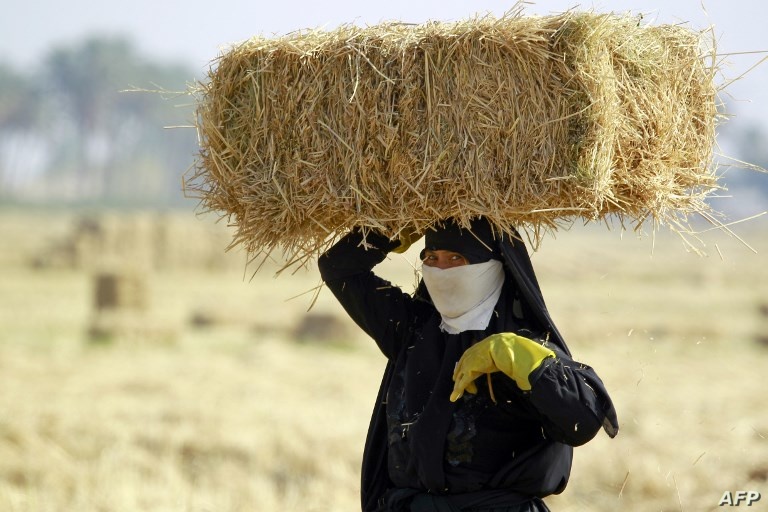How has climate change affected Iraqi women's livelihoods?

Shafaq News / Um Anwar, a 34-year-old farmer, reluctantly opted to abandon her house and land in the southern Iraqi governorate of Diwaniyah and migrate to al-Muthanna governorate in pursuit of a new job opportunity, as have many other farmers suffering from climate change-related drought.
Um Anwar is a widow who used to grow okra and black-eyed peas to support her four children. However, she is currently unemployed after being forced to leave the Samawa brick factory owing to the extreme heat, harsh working conditions, and low wages.
Climate change has had an impact on the country's agricultural, industrial, and other sectors. The southern regions suffered the most damage, particularly the marshes, which suffered the death of fish, birds, and water buffaloes, causing many families to displace as a result of the loss of their economic resources.
According to Zuzan Ali Saleh, a member of the parliamentary committee on agriculture, water, and marshes, "many women in the southern governorates contribute to helping their families economically by working in agriculture or raising livestock, and thus climate change has affected the economic reality on them, and caused an increase in the level of poverty in these governorates."
Nissan al-Zayer, another member of the committee, in addition to Suhaila Awfi al-Ajrash, a member of the parliamentary human rights committee, agreed on the importance of "creating job opportunities for women to support themselves and their families, especially rural women, who have been greatly affected by climate change."
They explained to Shafaq News Agency, "The support is through granting them loans, encouraging them to establish small projects, and introducing them to training workshops."
Climate change negatively affects the psychological health of humans, especially in people who have genetic and biological factors for mental illness, as extreme weather causes them psychological stress, which is called environmental anxiety, or phobia of weather and climate changes, according to psychotherapist Dr. Mawj al-Kinani.
She pointed out that "recent studies have linked climate change and mental health, which is indirectly affected by heat, humidity, rain, and drought, through economic and social activities and direct pressure on workers outside the home, especially working women."
"Working women face pressures at home, and social pressures because they go out of the house to work, and these pressures lead to the emergence of anxiety, phobias, and PTSD."
According to al-Kinani, recent studies have found a relation between increased visits to psychiatrists and suicides with high temperatures, especially in women, and also found that high temperatures may increase the rates of depression, especially among pregnant and working women.
Moreover, high temperatures affect people who work under the sun or in high-temperature places.
Direct exposure to sunlight causes heat stroke or vascular shock, when sweating increases and reaches the stage of dehydration as a result of the loss of fluids and salts, after which the person enters the stage of shock, coma, and loss of consciousness, according to family medicine specialist, Dr. Ammar Hussein Ahmed.
Concerning those who work in hot indoor environments, Ahmed stated that "these people are affected by heat in terms of breathing, stress, and excessive sweating, which also leads to loss of consciousness and coma," adding that "men may be more tolerant of heat because of the nature of their body to withstanding stress and fatigue compared to women."





